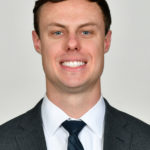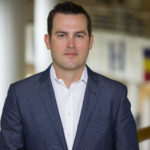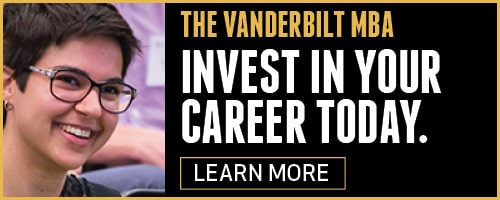By Nathaniel Luce
Many MBA students return to b-school with the dream of starting their own company. But more and more students are also looking for jobs on the other side of entrepreneurship: venture capital and private equity. These firms seek out high-potential startups to invest in, with the hopes of great returns farther down the line.
The appeal of venture capital careers for MBAs is clear: The firms identify opportunities, solve business problems, and create value for the startups they invest in — fundamental tenets of a business education. Positions require employees to work across functions (in finance, operations, marketing, human resources, and more) and prepare them well to launch their own business eventually, should they choose that path.
But launching a career in venture capital straight out of business school can be a difficult proposition. VC openings are normally filled on a just-in-time basis. Internships are available, but they don’t always come with the potential for full-time offers. And when positions do open up, b-school students with no experience may have a challenging time stacking up against seasoned professionals.
So how can business school students get an offer right out of school?
Getting Experience

Brittani Roberts
Second-year Vanderbilt MBAs Brittani Roberts and Dillon Vess were very realistic about their chances of landing positions at VCs. “You can want to pursue venture capital, but it’s very rare that there’s even an opening for full-time positions,” Roberts said.
Vess and Roberts arrived at school with different backgrounds: Vess was an investment banking analyst at Raymond James, Roberts a sales leader for tech companies Groupon and Olo. They both became heavily involved in the Owen Venture & Entrepreneurship Club (OVEC) and the Owen Center for Entrepreneurship (C4E) when they arrived on campus, but their recruiting efforts diverged from there.
“We required a different approach to finding opportunities,” Vess explains. “The OVEC, and the ecosystem at Owen and Vanderbilt, especially with the work (C4E Director) Michael Bryant and (C4E Faculty Director and Professor) Michael Burcham have done and continue to do, helped us find a lot of organic excuses to stay in front of VCs, growth investors, and private equity investors who don’t recruit via the traditional channels.”
Both Vess and Roberts used these events to demonstrate their abilities and lobby potential employers for project work. Roberts worked on an independent study for San Francisco-based GrowthX, while Vess worked with FCA Venture Partners during the school year, penning an investment thesis the company published on its website. “It served as a work sample that I was able to casually send to people I wanted a job from,” he said.
For his summer internship, Vess landed at Nashville Capital Network, a partnership led by Executive Director/Managing Partner Sid Chambliss (MBA’03) and Director/Managing Partner Chase Perry (MBA’08). Roberts ended up taking a Business Program Manager internship with Microsoft on its Azure Cloud team.
Finding a Full-Time Offer

Dillon Vess
While great experiences, neither of those internship positions led directly to a full-time offer, which is typical in the venture capital space. When they returned for their second year of school, Roberts and Vess turned their focus once more to networking.
Through Vanderbilt programming, Roberts met Joe Maxwell and Jared Winegrad at Fintop Capital. “I met Joe and Jared through them coming to judge pitch competitions and panels, and we knew them socially through the OVEC club and events through the C4E,” she explained. “They had seen my face, seen me interact with people, and seen us give presentations and pitches.”
When Fintop had an opening, they reached out to Roberts, and she jumped at the chance for consideration. She landed a job offer in under two weeks. “The opportunity would’ve never presented itself to me if we hadn’t been in front of them throughout the year,” she said. Roberts will assume the role of a principal this month.
Vess also found his full-time role through Vanderbilt programming, specifically the C4E’s inaugural Vanderbilt Entrepreneurship Conference last year. One of the keynote speakers was Justin Ishbia (JD’04), the founder of Shore Capital Partners, a firm focusing on microcap businesses with deep experience in healthcare (Professor Burcham is an Operating Partner at Shore). Ishbia had colleagues in town, and Vess lunched with them and talked about his interests and experience. One thing led to another, and he’ll be starting with the firm as an associate after graduation.
Putting in the Work
Vess and Roberts credit Bryant, Burcham, and Germain Boer for helping expand their network, but they’re quick to acknowledge that the assistance wasn’t offered sight unseen. “Because we have good relationships with people at Owen, and they trust us, see how hard we work and our involvement with entrepreneurship, they’re comfortable introducing us to their network and their friends,” Roberts said. “These three men really helped us build our networks, and that’s the biggest value of the C4E and our entrepreneurial resources.” Vess also cites his work with Brook Meissner, Associate Director at the Career Management Center, with guiding his approach to the self-search process.

C4E Director Michael Bryant
“Dillon and Brittani showed during their time at Owen how initiative, competence, and old-fashioned hustle can land you a job in two of the most desirable industries for MBAs,” said Michael Bryant. “They proved early on they had what it took to be successful in venture and private equity, so when these opportunities came about, they were perfectly positioned to land the jobs they came to Owen to get.”
While Roberts and Vess took slightly different paths to their positions, hard work, resourcefulness, and resiliency were pivotal to landing their offers.
“The more you knock on certain doors, the more they remain closed, but there’s a door that may open that you didn’t have in your vision,” Vess explained. “These things don’t come from nowhere. A big part of that is a willingness to do a side hustle, or project, or something for a company that you want to work for or is similar to a company you want to work for.”
“It think (the journey) speaks to the entrepreneurial person,” Roberts added. “If you’re going to find these jobs, you have to have that bone in your body, to be a self-starter and go find the opportunities, because they’re not posted anywhere.”
Want to learn more about getting an MBA at Vanderbilt Business? Visit the program page or request more information.
